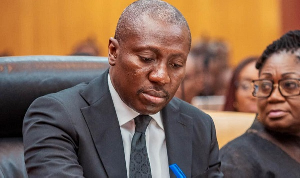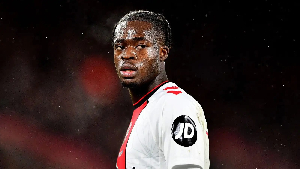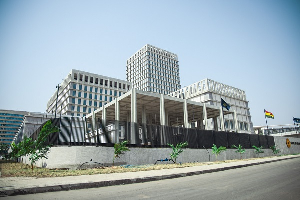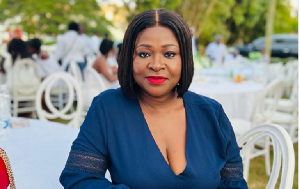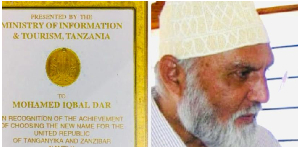“...The likelihood of changing the political game from the current winner-takes-all system to one in which politics is a means of promoting the collective good seems low at this point, as both main parties largely agree on the purpose of the political game: to capture the patronage networks that make continued political success more likely. The two main political parties agree on the rules of the game because there is a realistic possibility that either party could win the next election. A governance system based largely on patronage, as is normally associated with single-party states, is functioning in a democratic context in which two, balanced adversaries assure its continuation, if not its stability...” (USAID report 2011).
The situational analysis of Ghana’s democracy in 2011, holds true today, some three months ahead of the 2020 general elections. To meet the current case in point expectations, I must acknowledge the burning issue of the 100% increment in filing fees for presidential candidates in the upcoming elections. But that should be the least of our problems when it comes to monetising our electoral politics, if the Election Management Body (EMB), would be fair to smaller parties and review downwards the threshold for refund of filing fee deposits to attaining 1% of total valid votes for both presidential and parliamentary candidates.
The bigger problem of monetisation is rooted in the “winner-takes-all” and “loser-loses-all” governance system imposed by the transitional and imperial 1992 fourth republican constitution that we have decided to maintain despite its many flaws.
See “Ayawaso West by-election – The spectre of winner-takes-all politics inGhana”https://www.myjoyonline.com/opinion/ayawaso-west-by-election-the-spectre-of-winner-takes-all-politics-in-ghana/.
Vote buying: “to give or receive money or something of value as a means of inducing a person to vote, or not to vote in a certain way”, has clearly, diminished the integrity of our electoral process over the years to the point where, open vote buying no longer strikes us as an offence, even though it is listed among the electoral offences on our statute books.
Section 20(1) of the Representation of the People Law, 1992 (PNDCL 284), prescribes “…the election of a candidate shall be declared void on an election petition if a high court is satisfied: (a) That general bribery, general treating, general intimidation or other misconduct or circumstances, whether similar to those specified in the law or not, have so extensively prevailed that they may reasonably be supposed to have affected the result of the election”.
The existence of these laws must lead to the legitimate questions of: Who is responsible for enforcing them and against whom?
Is it the Police? The EMB? The Attorney General and Minister of Justice? Or an aggrieved citizen? It is interesting that all the heads of institutions that might be imbued with the authority to initiate action to put offenders of electoral laws before the courts are appointed by the Executive President. Is it possible for the Ghana Police to arrest and prosecute the President or a candidate of his party for vote buying? Who would authorise such an arrest?
The answers to these questions call for sweeping reforms. Specifically, constitutional amendments that must tone down the excessive powers of the Executive President, build capacity, and in some circumstances, practically yield power and authority to other capable governance institutions to deliver on their constitutional mandates without fear or favour. We cannot afford to continue to be complacent. Our “successes” at holding seven presidential and parliamentary elections and alternating power between two “different” political parties that are invariably “the same”, notwithstanding.
Perhaps in our haste to confine the military to the barracks and place them under civilian control forever, with the imminent coming into force of the 1992 constitution, we forgot to empower other state institutions such as the police or EMB to check the excesses of the political elite, such that their errant members could be prosecuted for Representation of the People Law, 1992 (PNDCL 284) breaches.
How did we become complacent so quickly as to have lowered the bar as regards monetising our electoral democracy when allegations of bribery and corruption have been the justifications for all the military interventions in Ghana? This is the big question we must answer as we search the way forward for open and accountable governance in Ghana.
We can delude ourselves into thinking that the recent military takeover in Mali is a special case. But we must never forget how on the eve of the installation of a legitimately elected President of Nigeria in 1993, he was prevented from taking his legitimate office when Gen. Sani Abacha seized power and annulled the elections. The president elect Chief Moshood Abiola had clearly won the elections but ended up in jail and died.
At this stage in Ghana’s democracy, mutual, persuasive but stern cooperation among stakeholders such as the EMB, political parties, the law enforcement agencies, a responsible media, civil society and the electorate, remains the only way forward to demonetising our electoral processes.
In the absence of the fear of going to jail for vote buying, the fear of “loser loses all” when we lose elections, have compelled Ghanaian politicians to attempt to win by all means. The vote buying, vote stealing, incumbency abuse, intimidation, electoral violence, vigilantism, ethnocentrism for electoral advantage etc have come to stay as a result of the need to win by all means.
Finally, and as part of the solution, the political elite of today must must attempt to answer the question: What governance system are we leaving for the next generation when Ghana turns 100 years in 2057? What would that generation think and say of our generation?
Opinions of Wednesday, 23 September 2020
Columnist: William Dowokpor







